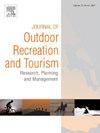“故事型”或“专栏型”:不同类型户外安全教育对徒步者安全参与行为的差异影响
IF 4.4
3区 管理学
Q1 HOSPITALITY, LEISURE, SPORT & TOURISM
Journal of Outdoor Recreation and Tourism-Research Planning and Management
Pub Date : 2025-05-28
DOI:10.1016/j.jort.2025.100898
引用次数: 0
摘要
本研究探讨了不同类型的户外安全教育对徒步旅行者安全行为的影响,评估了清晰度和心理类型在增强徒步旅行者安全行为中的作用,并界定了策略的适用性和局限性。第一个实验涉及120名大学生,第二个实验涉及300名徒步旅行小组成员,第三个实验包括160名多山徒步旅行活动的参与者。结果表明,户外安全教育对徒步旅行者的安全参与行为有显著的促进作用,其中安全认知起着重要的中介作用。柱式安全教育对徒步者行为的影响比故事式更有效。此外,角色清晰度和Plog的心理类型是安全教育有效性的重要调节因子,不同类型对结果的影响不同。因此,在开展徒步旅行安全教育时,优先考虑柱型,并考虑角色清晰度、心理类型等个体差异,可以优化安全效果,促进徒步旅行的可持续发展。本文章由计算机程序翻译,如有差异,请以英文原文为准。
“Story Type” or “column Type”: The differential impacts of different types of outdoor safety education on hikers' safety participation behaviors
This study explored how different types of outdoor safety education affect hikers' safety behaviors, assessing the roles of clarity and psychological types in enhancing these behaviors and defining the strategies' applicability and limitations. The first experiment involved 120 university students, the second engaged 300 members of a hiking group, and the third included 160 participants in a multi-mountain trekking event. The result turns out that outdoor safety education significantly enhances safety participation behaviors among hikers, with safety cognition acting as a key mediator. Column-type safety education is more effective than story-type in influencing hiker behaviors. Additionally, role clarity and Plog's psychological types are important moderators in the effectiveness of safety education, affecting outcomes differently based on the type. Therefore, when developing safety education for hiking, prioritizing column-type and accounting for individual differences like role clarity and psychological type can optimize safety outcomes and promote sustainable hiking.
求助全文
通过发布文献求助,成功后即可免费获取论文全文。
去求助
来源期刊

Journal of Outdoor Recreation and Tourism-Research Planning and Management
HOSPITALITY, LEISURE, SPORT & TOURISM-
CiteScore
6.70
自引率
5.30%
发文量
84
期刊介绍:
Journal of Outdoor Recreation and Tourism offers a dedicated outlet for research relevant to social sciences and natural resources. The journal publishes peer reviewed original research on all aspects of outdoor recreation planning and management, covering the entire spectrum of settings from wilderness to urban outdoor recreation opportunities. It also focuses on new products and findings in nature based tourism and park management. JORT is an interdisciplinary and transdisciplinary journal, articles may focus on any aspect of theory, method, or concept of outdoor recreation research, planning or management, and interdisciplinary work is especially welcome, and may be of a theoretical and/or a case study nature. Depending on the topic of investigation, articles may be positioned within one academic discipline, or draw from several disciplines in an integrative manner, with overarching relevance to social sciences and natural resources. JORT is international in scope and attracts scholars from all reaches of the world to facilitate the exchange of ideas. As such, the journal enhances understanding of scientific knowledge, empirical results, and practitioners'' needs. Therefore in JORT each article is accompanied by an executive summary, written by the editors or authors, highlighting the planning and management relevant aspects of the article.
 求助内容:
求助内容: 应助结果提醒方式:
应助结果提醒方式:


